Male Muses And Inner Dicks: A Conversation With Kate Christensen
Male Muses And Inner Dicks: A Conversation With Kate Christensen
by Maud Newton
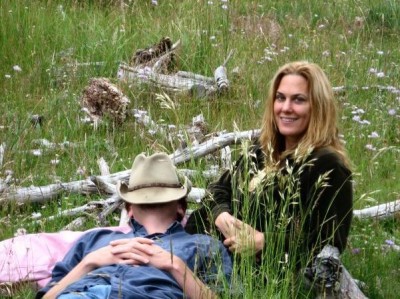
I discovered Kate Christensen’s work several years ago, when I read The Great Man, and then all the rest of her books, in one weekend. After I praised them on the radio, she emailed me and we became friends, which is great because she’s a wonderful, smart, funny, generous person, but it’s also weird, because she’s one of my favorite living writers, and here she is, flesh and blood, moving through the world like the rest of us.
Her latest novel, The Astral, is about poet and sometime lothario Harry Quirk, 57, whose wife has just destroyed all the sonnets he’s been working on for years and, wrongly accusing him of having an affair with a friend of theirs, kicked him out of their Greenpoint (Brooklyn) apartment. He’s moved a few blocks away, into one of the city’s most notorious SROs.
You’ve said that you wrote your first novel in the eighth grade for a boy you liked. “He giggled gratifyingly at each chapter,” you told The New York Times, “which I found so inspiring, I have been collecting male muses ever since.”
If Robert Graves were still around, he’d say that’s impossible: “Woman is not a poet: she is either muse or she is nothing.” Don’t worry, though! It’s not that women — sorry, woman — can’t write, just that when a woman writes “she is herself the Muse, a Goddess without an external power to guide or comfort her.” Why do you think there’s been so much resistance historically to the idea that a woman might be creatively inspired by love and lust and longing for a man?
This makes no sense to me at all. Women need men to get pregnant, among other important things. So why can’t we need men to fuel our work?
My first muse was a chubby, bespectacled, brown-eyed, sharply intelligent 13-year-old boy in Phoenix, Arizona in 1975. When he laughed at and loved my writing, I felt the erotic surge of my own power. Since then, I’ve written for and about and to and because of men.
Writing with this “external power to guide and comfort me” has inspired me to write in first-person male voices — it’s inspired my sex scenes — and it’s caused me to work very, very hard, in a disciplined, sustained way, as if I were a man, as if I were entitled to seize all that time for something as dubious as novel-writing. My male muses are crucial to my work, inseparable from it. They’re the oil that lights the lamp.
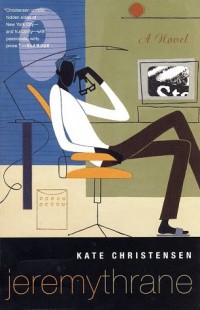
Last month, in (what I like to call) your “dick for a day” essay, you explained that you ended up writing from a male point of view partly as a reaction to critics’ dismissing your first book, In the Drink, as chick lit: “My second novel, Jeremy Thrane, is narrated by a man who, in the opening passages of the novel, describes his penis, in case anyone is in any doubt as to his sex.” Did you sit down and write those paragraphs in a white-hot rage? “Oh, yeah, well here’s my dick, you motherfuckers!”
Ten years ago, that might have been the case. In fact, I wrote that essay in a state of calm, retrospective honesty; the entire thing emerged in a couple of hours, pretty much exactly as it was published. It felt very, very good to write it, the way it always feels to tell the plain truth without worrying what people will think.
At the end of the essay, I explain that I’ve relinquished my “inner dick,” at least for now. I spent my late twenties and early thirties in a state of hotheaded fury — at the way things were, at the unfairness of it all, at the wrongheadedness of my species — you name it. I think that, over the years, this white-hot, male-feeling rage has mutated into another, different, possibly purely female mode, one that will likely inform my next books — but I can’t know until I’ve written them.
Oh, I was unclear! I love that essay, as you know, but I meant: did you write the opening of Jeremy Thrane in a rage? It amuses me to imagine you sitting down to write your second book and starting things off by, so to speak, slapping your narrator’s cock on the table.
Anyway, enough dick talk. Getting back to muses: Do you think there’s any more misguided impulse for getting involved with a writer — or, really, any kind of artist, but particularly a writer — than that you want to see yourself glorified and sanctified and memorialized in the writing? Does that ever end well?
Can it possibly end well? First of all, writers are difficult to live with, and the possibility of being immortalized or celebrated in our work is unlikely if you’re the person we see every day over the dirty breakfast dishes. The payoff for musedom is slight enough (as I see it) to be nonexistent; you have no control over whether you’re portrayed at all, let alone in what light, and, worse, you have to live with a moody, insecure, egomaniacal workaholic without a secure income or any benefits. When it’s a woman, throw in PMS, and any gambler could tell you the odds against that horse.
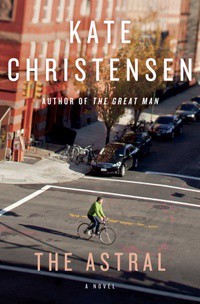
Luz, the rageful wife in The Astral, who has destroyed Harry’s poems and kicked him out, pretty clearly married him expecting to serve as his muse. Through the years, as his writerly star rose and then fell, she seems to have consoled herself with the idea that she was his subject — which may be why, at least as Harry tells it, she so utterly flips out when she discovers that the sonnets he’s been working on for so long are about other women. He tries to explain that the poems’ subjects are imaginary women, idealized women, women who, existing only in his mind, are no threat to their marriage, but she continues to insist that he’s having an affair.
It’s fascinating to me that Harry suspects their marriage would have been easier to repair if he had been physically unfaithful. It’s the betrayal of his imagination that Luz seems to find unforgivable. Or at least she resents these poems more than the affair he actually did have twelve years before. Have you ever been involved with someone so hell-bent on being your muse that he (or she) gauged your fidelity by what you wrote?
Never. Unlike Harry, I have no tolerance for being controlled by sexual jealousy or by anything else. I created Luz out of my own extreme distaste for, and desire to expose in writing, whatever that mechanism is in certain women that causes them to spy without permission on their lovers’ or husbands’ emails or texts or conversations (or poetry) to gauge whether or not they’re being unfaithful, and then to interrogate them obsessively and rip them to shreds and declare vengeance on the so-called “other woman” and throw things and stamp around screaming.
There is something in that loony, pathetic, deranged behavior — most of all a delusional sense of entitled ownership of another person, but also a grasping, desperately insecure possessiveness — that makes me cringe. Luz’s character is based on the wives and girlfriends of men I’ve known. I’ve never behaved that way, and I’ve never been in a relationship with a man who behaved that way. (It wouldn’t last long, to put it mildly.) But it was lots of fun to write about.
I once dated a guy who was a little bit like Luz; it didn’t go well, to say the very least.
In an essay about marital boundaries, you remembered all the flirting and longing and intense email exchanges that preceded your divorce. Do you think Harry was in a similar state, that his marriage to Luz was emotionally over for him and needed to end and that she ultimately did him a favor by booting him?
I envision Harry as very, very lonely in his marriage, but dependent on it and committed to it — an all-too-common state of affairs, in my experience. Before Luz booted him out, he was paralyzed and stuck and stunted in a marriage that was emotionally defunct, passionless. When the book opens, he’s floundering toward something else, some other way of being that involves growing a spine and a set of balls, as it were. I think Luz did him an enormous favor by booting him out, but as for the rest of it — the accusations, the destruction of his work, the victimized role she played… the marriage should have ended on its own terms, without all that psychodrama, without the histrionics. In that essay, I say in so many words that it’s better to leave cleanly than to stick around and make trouble; in the case of Harry and Luz’s marriage, it would have been better for Harry, of course, if she’d just quietly asked for a divorce. But then there would have been no novel.
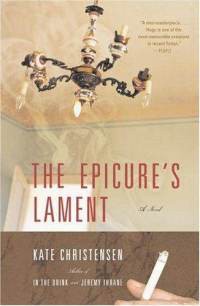
In an interview about adapting your third novel, The Epicure’s Lament, you talked about your changing feelings toward the narrator, Hugo. “Now that I’m so much older than he is, I see him as young and confused,” you said. “At the time, I accepted his self-view of himself as a bitter old washed-up failure; now I understand how mistaken he is in his self-conception. He’s only 40. He has no idea how young he really is and how much possibility there is left in a life for change.”
How about Harry? At the start of The Astral, he’s broke and jobless and, having lost his teaching gig and then sat around writing for years while Luz supported him, basically unemployable. Like Claudia (of In the Drink) and Jeremy (of Jeremy Thrane), he’s careening around, casting about, getting himself into trouble…
I do seem to love these characters. Maybe floundering is my novelistic subject, if I have one. Lives in flux and trouble, characters challenged to face certain hard-to-face things, interest me as a dramatic prospect, as characters, so much I might never get tired of writing about them.
When I was 40, I created Hugo; he was an alter ego for what I was going through at the time. He and I both felt bitter and washed-up. Now it’s almost nine years later and I feel neither of those things. Life goes on for the novelist, but the character remains stuck in the book. I find it very interesting to look back on my characters and understand them in new ways, years later. It doesn’t mean I’m judging or disavowing them, as the interviewer above very mistakenly assumes. It means I’ve had other experiences since then. It means I have gained some perspective.
Your characters’ predicaments are dark and desperate and true, but their stories, Hugo’s included, generally end with at least a slight uplift. I know you’re not a moralist, but would you agree that a theme common to your books is that confronting all the hard-to-face things is better than living a dead, dull life, steeped in denial?
I think that is absolutely the sense I have of life and of novels. I write about people wrestling with various internal conflicts in ways that ripple outwards and cause more external conflicts; repressed, obedient, “good-citizen” characters interest me very little because there’s little possibility for change in them. I’m a very old-fashioned writer. Change is what I’m after. It’s my only plot device, and it emerges from within the narrators themselves. I can’t force them to do it, it has to come from them. Each of my books ends with a clarification, a shaping towards something new — that’s the uplift you’re referring to, I think. My own life has been a series of such wrestlings — with crises and slight uplifts as I move on toward something else. Flux is exciting; struggle and discord and trouble fascinate me.
Your mom is a psychologist, and the narrator of your last novel, Trouble, was too. The shrink in The Astral, though, is manipulative, bossy, and clueless, crossing boundaries all over the place, treating both members of several married couples Harry and Luz know, and Harry is enraged that Luz has started seeing her. In the essay about your marriage, you mention that you quit therapy after your divorce because it was doing more harm than good. What are your thoughts about head-shrinkery these days, and how do you think your exposure to and experience of it have affected your writing?
Over the course of 20 years, I’ve seen six therapists that I can recall — three individual, three marital. I’ve never officially “graduated” from therapy. I always leave when I feel that the therapist is more invested than I am in the process, when I start to feel controlled and manipulated and needed in some weird way. I always find it very helpful up until that point, introspective analysis and emotional revelations and all of it. My sense is, though, that therapy can easily cross over from helpful and enlightening to a kind of mind control on the therapist’s part without either party realizing it. That’s when it becomes dangerous.
The shrink in The Astral is based on a real one. I don’t know her last name, and I’ve never met her, but I know a lot of her clients, and have heard many things about her through them — she sees a large group of friends, various members of love triangles, both members of married couples, employees and employers, and she employs “maverick” tactics, which is to say, she is unethical and out of control. There is no channel that I know of for stripping such therapists of their ability to practice. So I put her in a novel.
The Astral might be my favorite of your novels yet — I’ll have to wait a year or so before I know for sure — but a few friends who love your work are disappointed that Harry isn’t more like Hugo (of The Epicure’s Lament). Do you run into this a lot, people wistfully comparing your latest book to an older one?
As I read this question, I felt a familiar flash of wildly irritated weariness at readers (and critics) who make this complaint. I’m almost too annoyed by it to answer this question. Harry isn’t Hugo. Harry is a whole new character, and this is a whole new book. Novelists are not McDonald’s. Every box of French fries is different and new.
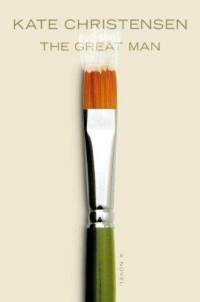
When we spoke a few years ago about the wrongheaded critical response to your first novel, which ended up being lumped with Bridget Jones despite having more in common with Lucky Jim, you said, “I felt a bit like an underdog/loser with a thwarted ego and an axe to grind in one of my own novels, and in that sense it was ironic, fitting, and really, the best thing that could have happened to me. Sure, it pissed me off at first, because few things are more infuriating than being underestimated, but it also lit a fire under my ass, so to speak, and taught me a few valuable Zennish lessons about writing: Let It Go (you can’t control what people make of your work); Keep Moving Forward Like a Shark (all you can do is write more books); and Ride the Ocean Tides and Stay Your Course (your internal compass, not a glowing or scathing review, is the one authority to be heeded and obeyed). If by some stroke of bizarre and undeserved fortune my first novel had been hailed as genius and won prizes and I’d floated off in a filmy golden bubble of critical blowjobs and huge advances,” you said, “that would not have been in any way as good for me as a writer as being written off as disposable fluff. Honestly.”
Not long after we had that conversation, you won the PEN/Faulkner. How did that feel? Knowing you, I’m sure you didn’t float off in a filmy golden bubble, but did you feel mostly excited and inspired, or more pressured and anxious, or…?
It made me want to work even harder, write even better. I felt both anxious and inspired, in about equal parts. Because it was my fourth novel, and not my first, I was able to keep things pretty well in perspective. I felt very lucky. It was a great thing to have happen. But it couldn’t affect how or what I write; that all happens underground, and this was a public thing. The two exist in completely different realms.
I for one still feel your work is underappreciated. Plenty of female writers, from Muriel Spark to Marilynne Robinson, write about men well, but I’ve had trouble thinking of many who do it so flintily, and with such humor and brio, in first-person. Patricia Highsmith and Iris Murdoch, maybe? Who would you add?
First of all, Housekeeping is one of my all-time favorite novels. I haven’t read much Highsmith or Murdoch, but I feel I ought to. I’ve always loved and admired Dawn Powell, MFK Fisher, and most of the mid-20th century female British novelists — Penelope Fitzgerald, Margaret Drabble, Mary Wesley, and Muriel Spark, to name just a few. Their tough-minded, clear, ironic, passionate, subtle, wide-awake voices are some of my greatest inspirations. They all understand people, men and women both, in ways I find true and thrilling.
For Murdoch, I recommend starting with The Sea, The Sea or The Black Prince; that was the advice a friend gave me, and he was so right. Under the Net, her first novel, is a great romp, though, and maybe more up your alley. I read that one after Randa Jarrar posted that she was consumed with jealousy to find anyone had written a first novel that good. (In fact, she discovered, it was Murdoch’s fifth novel, just her first that was published.) I love Spark, Drabble, Powell and Fisher. Spark especially; I idolize her. Clearly I need to get to Wesley and Fitzgerald…
Why did you write from a poet’s perspective this time around?
Poets make reliable narrators. They distill, refine, make magically potent their perceptions, experiences, and observations, rather than codifying according to moralistic preconceptions or warping to conform to dogma — they take life and make clear, true liquor out of it. A poet is an everyman and a fool, a member of an effete and obscure subset of our species who writes for himself and others like him.
I wanted to be a poet, but I lack the sensibility; I’m too social and too long-winded. Choosing a poet for a narrator — a struggling, down-on-his-luck poet who has run aground on the limitations of his lifelong adherence to form, since no form can contain his poetics anymore — was self-indulgent wish-fulfillment on the one hand, since it was sheer pleasure to inhabit his psyche and voice, and on the other, a necessary narrative strategy.
Who are some of the poets you admire most?
Elizabeth Bishop, Wallace Stevens, Francois Villon, Emily Dickinson… I’m all over the map in terms of poetry. I used to read it a lot. Every day. I kept poetry collections by the bathtub and sat dreaming in the bath over poetry, letting the language wash my brain and leave behind its residue. The older I get, the less poetry I read.
The novelist at midlife would seem, if I can be seen as an average example, to be focused, pragmatic, antisocial, a homebody kind of creature. I was wild when I was younger, my brain roamed all over the place, I drank too much and loved loud music and walked the streets of New York in a manic state of wonderment. I read so much poetry, craved it, wallowed in it.
I feel as if my first decades were spent ingesting everything I could greedily swallow of the world and of life. These midlife years, I feel like a stomach, digesting, recollecting, understanding in a ruminative way (what does this say about my end years, no pun intended, if I was a mouth first and now am a digestive system? Oh dear). Reading poetry augmented and fed my adventurous sense of living as fully as possible. I have amassed a lot of experience to mull over in tranquility. That is my greatest pleasure now.
One constant in your novels has been New York. You’ve portrayed the city so vividly and lovingly, it feels endemic to your storytelling. Do you think that’s changing now that you’re living in New Hampshire?
I don’t know yet; it’s too early to tell. For 20 years, I felt married to New York, and now we’re getting a divorce; during those two decades, New York was my place-muse, and now I’m a little tired of it, but not entirely over it. My next one, Gin on the Lanai, which I’m about to start, will be about a New York-based food writer who goes to Kauai to research Hawaiian cuisine; the book is set elsewhere, but the sensibility will very probably be profoundly New York-y. This might be the direction I’m headed in; I’m curious to find out.
Can’t wait! See you back here in a couple of years.
Maud Newton is a writer and critic best known for her blog, where she has written about books since 2002.
